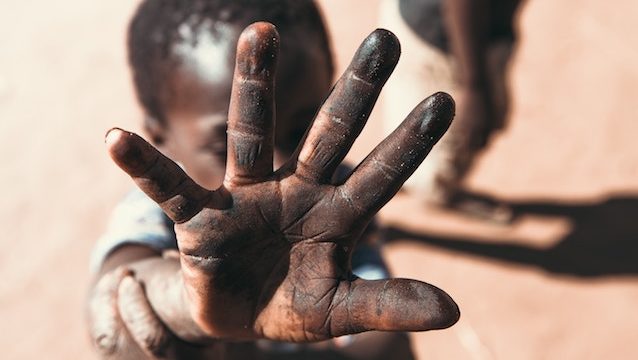“My father didn’t want to sell me, but someone put a spell on my uncle and he persuaded my father,” recalled Senami.
The 13-year-old girl was bought in Benin, sent to the oil-rich country of Gabon where she was enslaved as a domestic servant to a “wicked” Beninese woman who only gave her scraps of food to eat.
“When she found that 100 CFA francs (15 centimes) were missing she beat me with slippers and then with a stick,” she said.
Another girl, Niakate Tene, was purchased by a man in Mali for 500 000 CFA francs ($884), and later forced to marry him. The police discovered her in her husband’s home, chained up and in tears.
These two girls — whose names have been changed — are just a couple of the hundreds of children trafficked to Gabon.
News 24 reports:
Gabon is only one of nine West African nations, alongside Benin, Burkina Faso, Cameroon, Ghana, Ivory Coast, Mali, Nigeria and Togo, where the UN says centuries-old exploitation of child labour remains entrenched.
Recruitment for domestic work appears to be the most prevalent form but other types of labour include work in plantations, small trade, begging and soliciting.
The children survive on meagre portions of food and are generally made to sleep on the floor. If they are paid, the rewards are meagre, for the salary goes to the trafficker.
Many youngsters are brought to Gabon through perilous routes, sometimes on rickety boats on winding rivers.
“Six people died during our journey – we travelled on a dugout canoe for four days,” said Senami, who came to Gabon at the start of this year.
Michel Ikamba, a UNICEF official in Gabon, says that child trafficking in West Africa often involves a web of traffickers operating across borders.
A child nanny is paid between 100 000 and 150 000 CFA francs ($174 to $267) a month but the money goes back to traffickers, said Ikamba. “The child is not paid…and nothing goes back to the home village.”
Child trafficking has decreased in Gabon somewhat since the country introduced a law criminalizing the act in 2004.
However, a judge who spoke on the condition of anonymity, said that child labor is still seen as a “social tradition” by his peers. As a result, traffickers often try to bribe magistrates when they are caught.
“Some judges are turning this fight against child trafficking into a money making machine,” he said.








Freedom United is interested in hearing from our community and welcomes relevant, informed comments, advice, and insights that advance the conversation around our campaigns and advocacy. We value inclusivity and respect within our community. To be approved, your comments should be civil.